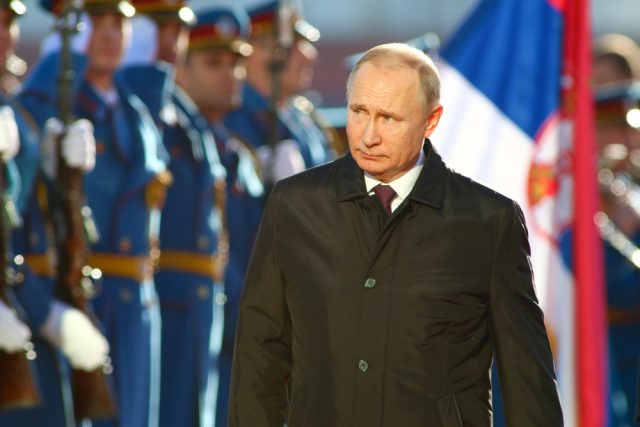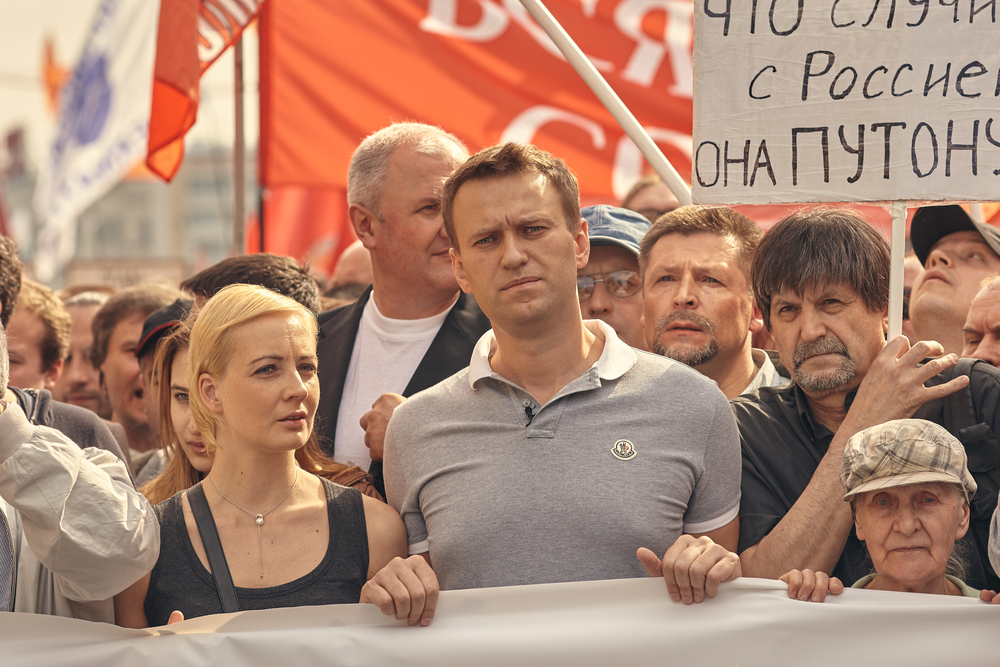
At the Tsar’s court: a new mandate for the Russian President. Despite the presence of protests, Putin emerged victorious in the elections.
The recent presidential elections in Russia were marked by three days of tension. The result was obvious, especially given the media’s overexposure to the outgoing President Vladimir Putin and the fact that the competing candidates did not have sufficient strength to concretely oppose Putin.
Recent developments in the Russian Constitution have enabled Vladimir Putin to participate in the upcoming elections. This was made possible through the elimination of certain mandates before the constitutional reforms.
In fact, in March 2020, the Russian parliament, the Duma, and the Federation Council approved a law that modifies the maximum two-term limit for the office of president. The amendment was made to allow President Vladimir Putin to run for another term even after 2024, which is when his current mandate expires. The amendment states that it will not prevent any person who has previously held or is currently holding the office of president of the Russian Federation from participating as a candidate in the presidential elections. The amendment has been named the Tereshkova amendment after the first woman to have been in space. While the amendment is theoretically applicable to any former or current president, it is anticipated that Putin will be the only one who can take advantage of it, since the only other president who could have benefited from it, Boris Yeltsin, is now deceased. In other words, Putin could potentially have another 12 years of government ahead of him, as the mandate count is reset.
In any case, Vladimir Putin and United Russia were largely the favorites and the result certified him with 88.5% out of 78% of voters. A growing turnout compared to 2018, also thanks to the possibility of voting extended to Crimea and the areas of Kherson, Zaporizzja, and the self-proclaimed republics of Donbas and Lugansk, where Putin will presumably have obtained widespread support.
According to reports, the highest voter turnout in Russia was recorded just before the voting booths closed, indicating a possible fear of retaliation from pro-government supporters. Furthermore, numerous individuals raised concerns about the counting methods used, with the Russian newspaper Novaya Gazeta challenging as many as 31.7 million votes, which is nearly half of the votes obtained by President Putin.
Throughout the period when the polls were open, various updates were circulated through the messaging platform called “Telegram”. These updates included reports of soldiers entering polling stations, numerous arrests being made on the streets, and various protests, with the most significant one being the demonstration organized by Navalny’s supporters. The police, who were present in large numbers, primarily focused on managing the situation by regulating the flow of voters who waited in long queues.
Also, iconic protests took place outside polling stations of various embassies abroad during the recent elections. Long lines of citizens waiting to vote were joined by numerous protesters in Countries like Berlin, Kazakhstan, Istanbul, and Sofia.
 Yulia Navalnaya, the widow of Aleksei Navalny, bravely joined the line of voters outside the Russian embassy in Berlin to show her unwavering support for the “South against Putin” movement. This movement aims to empower the people to take to the streets and protest against the President and has been gaining incredible momentum. Pictures of Navalnaya on social media show her confidently holding a bouquet of flowers while being welcomed with thunderous applause and warm hugs. Her demonstration, which was proposed by a prominent opposition figure, was met with an overwhelmingly positive response from the supporters of the movement. Furthermore, Navalnaya boldly admitted to writing her husband’s name on the ballot paper, showing her unwavering determination to keep her husband’s legacy alive. The societal divide between those who support Putin and those who oppose him is crystal clear, with Navalnaya being a prominent and fearless figure in the opposition movement.
Yulia Navalnaya, the widow of Aleksei Navalny, bravely joined the line of voters outside the Russian embassy in Berlin to show her unwavering support for the “South against Putin” movement. This movement aims to empower the people to take to the streets and protest against the President and has been gaining incredible momentum. Pictures of Navalnaya on social media show her confidently holding a bouquet of flowers while being welcomed with thunderous applause and warm hugs. Her demonstration, which was proposed by a prominent opposition figure, was met with an overwhelmingly positive response from the supporters of the movement. Furthermore, Navalnaya boldly admitted to writing her husband’s name on the ballot paper, showing her unwavering determination to keep her husband’s legacy alive. The societal divide between those who support Putin and those who oppose him is crystal clear, with Navalnaya being a prominent and fearless figure in the opposition movement.
The opposition, unable to compete electorally, responded by making a lot of noise, as demonstrated among other things by the 74 arrests between Kazan and Moscow. Exemplary in this sense is the case of a woman in St. Petersburg who apparently left an incendiary device in front of the polling station, while the rest of the cases are less brutal, branded by the press as “vandalism” but which are nothing more than defamations against the newly elected president.
There has been a varied response from the international community following the Russian elections. A few countries, known for their strong diplomatic relations with Russia, such as China, North Korea, Cuba, Belarus, and Iran, were among the first to extend congratulations to the re-elected President of Russia.
China has expressed its congratulations on the election of Russia’s new leader. Foreign Ministry spokesperson, Lin Jian, stated that “China and Russia are strategic and cooperative partners in the new era”, and are each other’s largest neighbors. Chinese President Xi Jinping also congratulated the newly elected leader and stated that the election outcome fully reflected the consensus of the Russian people.
North Korean leader Kim Jong-un congratulated Vladimir Putin on his re-election. Iranian President Ibrahim Raisi also congratulated Putin on his clear victory. Meanwhile, Cuban Foreign Minister Bruno Rodriguez Parrilla wrote on the social network X that Cuba and Russia will continue to strengthen ties, particularly in areas that benefit their respective peoples.
Meanwhile, Ukrainian President Zelensky criticized the elections’ legitimacy, citing concerns that the presence of the army may have influenced the freedom of voting. The new Polish government also spoke out against the election, condemning the “harsh repression” and widespread violation of international law in extending the vote to the occupied Ukrainian regions.
The United States, Great Britain, Germany, and the European Union have joined forces to minimize the impact of the Russian elections. The President of the European Council, Charles Michel (MR, RE), made a strong statement through a post that included the slogan “No opposition. No freedom. No choice”. This statement raises serious questions about the legitimacy of the election results.
The recent elections in Russia have drawn attention from several European countries, including Italy. Giorgia Meloni, the Prime Minister of Italy who belongs to the ECR, has refrained from expressing her opinion on the matter. On the other hand, Antonio Tajani, the Foreign Minister who belongs to the PPE, has stated that the elections were influenced by strong and violent pressure. He cited the exclusion of Navalny, who was first imprisoned and then murdered, as well as the military guarding the polls as evidence. However, Matteo Salvini, the Secretary of the League who belongs to the ID, has a different opinion. He believes that the Russians have expressed their will through this vote and that it is time to understand how the opposition can do better next time. Salvini hopes that 2024 will be the year of peace, as an ongoing war can make it difficult for the winners to celebrate.
Concluding, following the official results of the recent presidential elections in Russia, it is noted that 31% of the eligible voters did not participate in the election. This includes both abstentions and votes cast for opposition candidates. This is a substantial number of people who chose not to exercise their voting rights, and it presents an opportunity to work towards creating a viable alternative that can better represent their interests.



 Subscribe
Subscribe